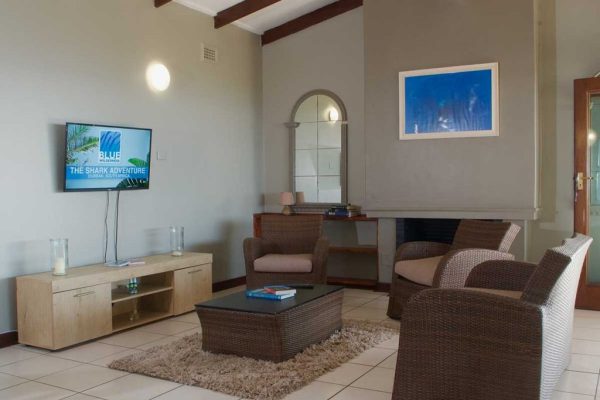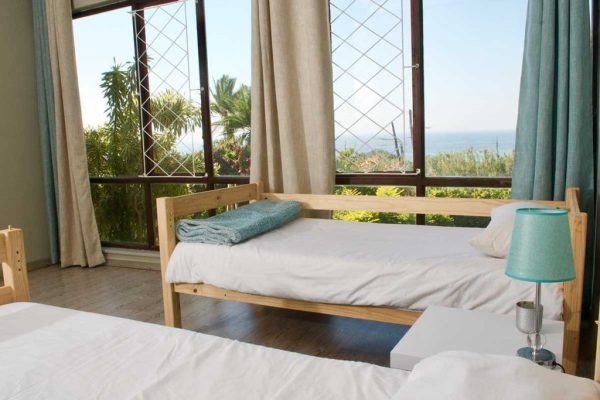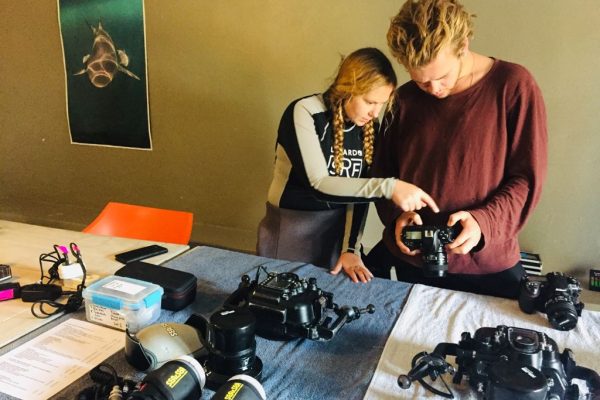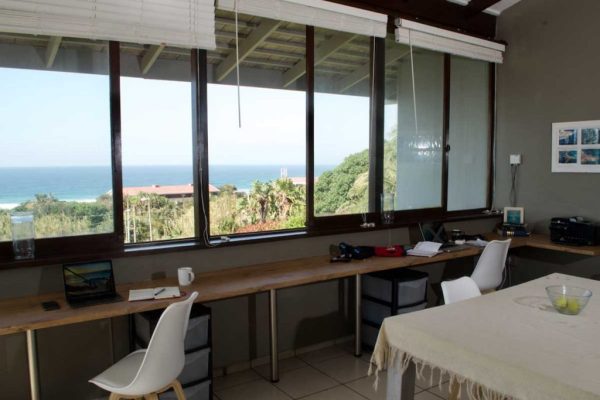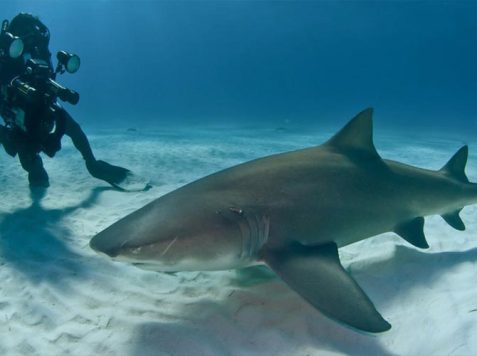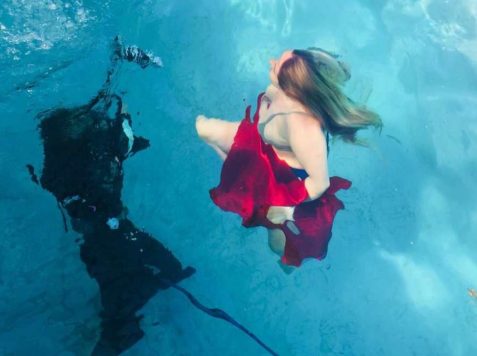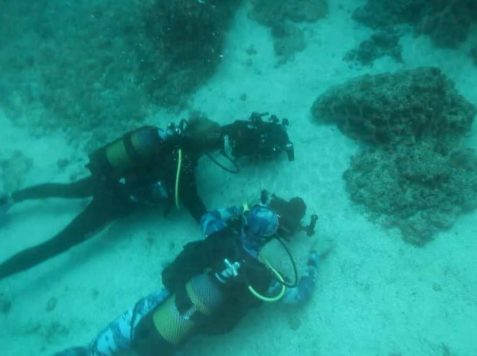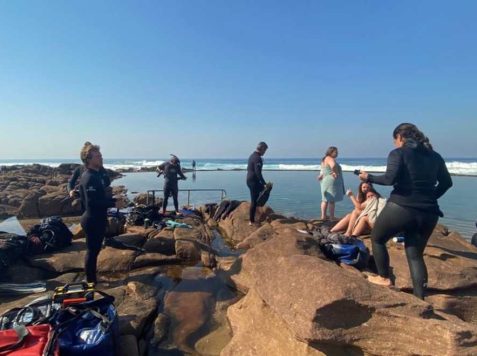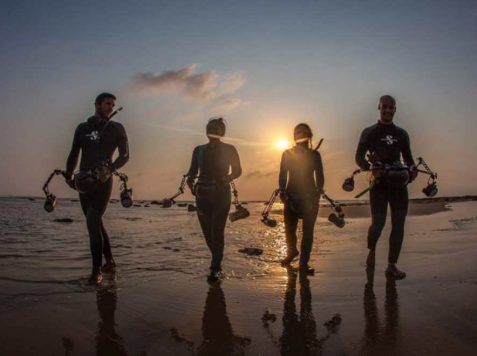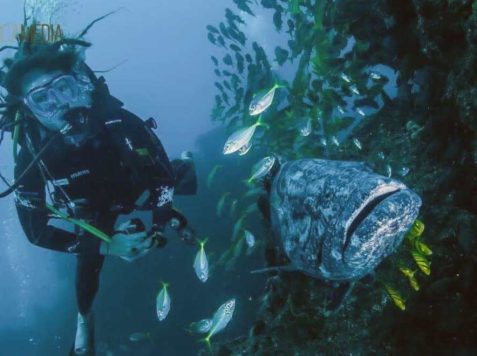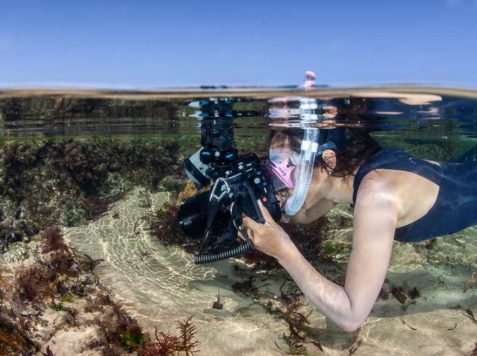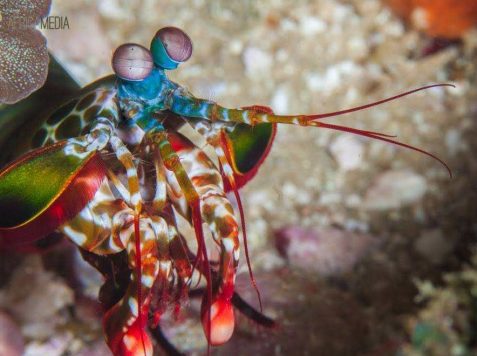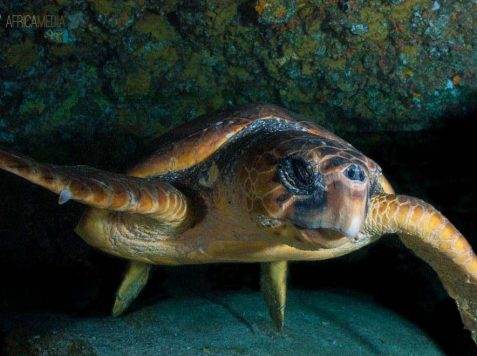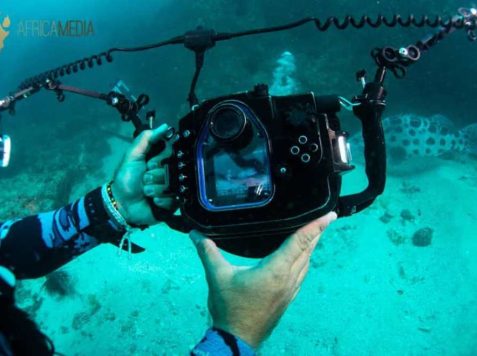Underwater Photography Internship
[/custom_font]
[dropcaps type=’circle’ color=” background_color=’#9d9d9d’ border_color=”]L[/dropcaps]earn vital skills for shooting under the waves. Led by a professional underwater photographer, students will be guided through the essential skills required to master both SCUBA diving and underwater photography.
Acquire the knowledge and practical skills required to master the art of Underwater Photography and videography while exploring the incredible diversity of the stunning coral reefs of the warm Indian Ocean. The Underwater Photography internship program uses dSLR cameras in Sea&Sea housings; DSLR and panasonic video and GoPros together with exceptional LED lighting and accessories.
Developed by internationally acclaimed underwater photographer, journalist and conservationist Fiona Ayerst, this course will empower students to see and explore the underwater realm in a totally new and intimate manner. We focus on becoming part of the marine world; using specialised breathing techniques and capitalising on the natural curiosity of the marine inhabitants. Fiona’s team will teach you how to capture the perfectly exposed and composed images and film. Creativity and new techniques are key.
[dropcaps type=’circle’ color=” background_color=’#9d9d9d’ border_color=”]A[/dropcaps]liwal shoal is a reef system that lies within the Aliwal Shoal Marine Protected Area. In the early 80s, it was rated as one of the world’s top ten dive sites by legendary ocean explorer Jaques Cousteau. Due to the protection, it is afforded, today it maintains its incredible diversity and abundance of species. Below are some of the special species found on the reef system.
[dropcaps type=’circle’ color=” background_color=’#9d9d9d’ border_color=”]T[/dropcaps]ake a minute and enjoy the underwater photographic portfolios of our past interns and students.

Louis Pieterse
COURSE INSTRUCTOR
[dropcaps type=’circle’ color=” background_color=’#5085A5′ border_color=”]L[/dropcaps]ouis am text block. Click edit button to change this text. Lorem ipsum dolor sit amet, consectetur adipiscing elit. Ut elit tellus, luctus nec ullamcorper mattis, pulvinar dapibus leo.
Fiona Ayerst
COURSE INSTRUCTOR
[dropcaps type=’circle’ color=” background_color=’#5085A5′ border_color=”]F[/dropcaps]iona is one of Africa’s most established underwater photographers and underwater photojournalists. Fiona is renowned for her love of the ocean and her conservation photography. Fiona is also an avid writer and aims to tell the story of Africa’s underwater realm through her photographs and written word. Fiona is the grammar police of Africa Media and edits everyone’s writing.
[dropcaps type=’circle’ color=” background_color=’#9d9d9d’ border_color=”]O[/dropcaps]our underwater photographic training internship is based at Scottburgh, South Africa – a small coastal village directly opposite the world-famous Aliwal Shoal. Participants stay at our purpose-built training centre – The Shark House. Here participants can enjoy the seaside training rooms, gear rooms and comfortable living quarters. The Shark House is located at 34 Egerton Road, Freeland Park, Scottburgh.
Internship price
from
- Internship training
- SCUBA Equipment
- Underwater Cameras
- 18 x Dive Package
- Accommodation
- Catered meals
- Local Transport
[dropcaps type=’circle’ color=” background_color=’#9d9d9d’ border_color=”]W[/dropcaps] orem ipsum dolor sit amet, consectetuer adipiscing elit, sed diam nonummy nibh euismod tincidunt ut laoreet dolore magna aliquam erat volutpat. Ut wisi enim ad minim veniam, quis nostrud exerci tation ullamcorper suscipit lobortis nisl ut aliquip ex ea commodo consequat. Lorem ipsum dolor sit amet, consectetuer adipiscing elit, sed diam nonummy nibh euismod tincidunt ut laoreet dolore magna aliquam erat volutpat.

The Gloworm Network is a community-driven online network for natural history media experts and enthusiasts. The community encompasses biologists, filmmakers, photographers, communicators, podcasters, journalists and more. Supercharge your career by Joining Gloworm today.
Testimonials from Alumni
[/custom_font]
Start your Adventure
Master the art of underwater photography whilst exploring the tropical reef of Southern Africa





